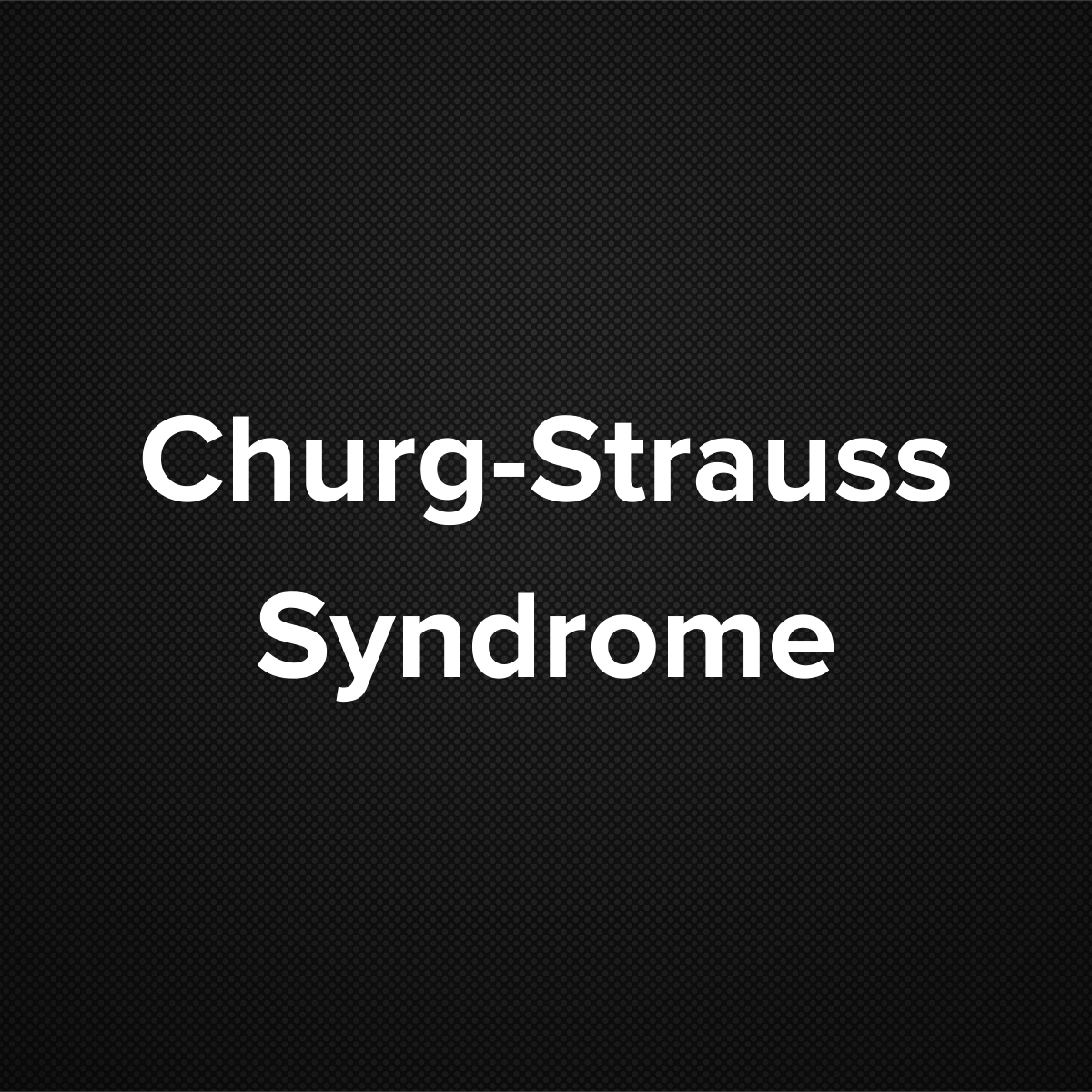Causative & risk factors
The exact cause of Churg-Strauss syndrome is not known. It is believed to be an immune-mediated disorder. The patient frequently has a history of allergy or asthma.
Clinical presentation
The symptoms will depend upon which organs are involved. Irrespective of the location, certain non-specific symptoms such as fever, malaise, myalgia, loss of appetite (anorexia), loss of weight (cachexia) etc. are present.
Most patients have a severe asthma characterized by coughing, wheezing etc.
Depending upon which organs are involved, there may be bleeding from the gastro-intestinal tract, the lungs (haemoptysis) and the urinary tract (hematuria). Pain may be present in the abdomen, joints or the chest. The heartbeats may become irregular. Other symptoms may include skin rashes, nausea, vomiting or diarrhea.
CSS can give rise to severe complications such as myocarditis, pericarditis, glomerulonephritis, peripheral neuropathy and scarring of the skin.
Investigations
A diagnosis of Churg-Strauss syndrome can be made only after assessing all the symptoms and eliminating the possibility of other diseases.
A blood test is carried out to check the eosinophil count (usually elevated) and the presence of autoantibodies.
Imaging tests such as X-rays, CT or MRI scans may be suggested.
Treatment
Churg-Strauss syndrome is an incurable condition. Treatment is aimed at relieving the symptoms and preventing complications. Corticosteroid and other immune-suppressive drugs are prescribed. Biologic drugs such as rituximab are being tested in these patients. Sometimes infusions of immune globulin may be advocated to patients in whom other treatment is not working.






























